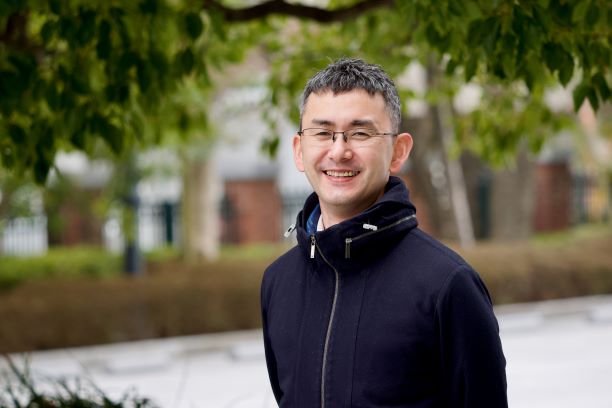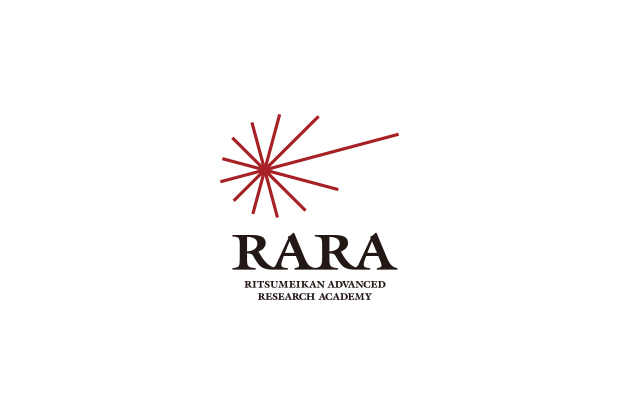RARA Associate Fellow
Implementing mild photochemical reactions that convert persistent chemicals into recyclable resources



Implementing mild photochemical reactions that convert persistent chemicals into recyclable resources
SCROLL
FELLOW PROFILE
Completed the doctoral course at the Graduate School of Science and Technology, Kansei Gakuin University in 2011 (early completion), receiving a PhD in Natural Sciences.
Previously worked as a JSPS Foreign Research Fellow at the University of Toronto, and as an Assistant Professor at Aoyama Gakuin University, before becoming an Associate Professor at the College of Life Sciences, Ritsumeikan University in 2017, and a Full Professor there as of 2023.
Concurrently working as a JST PRESTO researcher in “Secure Bonding and Gentle Degradation for Sustainable Material Design” since 2022.
Developing mild decomposition and recycling technology for fluorine compounds to realize a sustainable, recycling-oriented society
My research topic is the development of new materials and technologies that use renewable energy sources such as sunlight to gently dissolve extremely stable fluorine compounds, such as Teflon, into raw materials that can be used in resource circulation. Fluorine compounds are essential materials that support our comfortable lifestyles, and are used in refrigerants, resins, surface treatment substances, pharmaceuticals, and other products. Establishing technologies that gently dissolve and recycle these materials will contribute to realize a sustainable, recycling-oriented society.
SDGs are being proposed worldwide, and although I wanted to conduct research related to this topic before, my previous studies were on basic photochemistry, and I was at a loss about how to expand this topic. One day, I suddenly discovered a compound that produces an extremely strong reducing agent when exposed to ultraviolet radiation. If such a strong reducing agent could be produced by light, I thought it would be possible to gently decompose persistent compounds with light, which is how I conceived of this topic.
I am working to develop new materials and technologies capable of using visible light to gently decompose fluoropolymers that are extremely durable and widely used in society, such as Teflon and Nafion. By proactively coordinating with companies and other organizations, I would like to implement a gentle recycling system for fluoropolymers.
In the first few years, we will establish high-throughput reaction analysis technology that can assess dozens of photoreactions at a time, and use statistical analysis and artificial intelligence (AI) to search for new materials. This work will establish the foundational technologies and materials. Concurrently, we will proactively coordinate with companies that regularly handle fluorine materials to investigate and scale up the photolysis reactions of applied fluoropolymers. I would like to collaborate with professors in law, policy, and other humanities fields, as well as with local governments, to ultimately expand this work into a real-world waste treatment technology.
This research aims to achieve the recycling of fluorine resources in support of comfortable lifestyles using new materials and new analytical technologies, and as such, I believe it can directly contribute to the realization of a sustainable, recycling-oriented society. I also believe that this research will contribute to developing talent who will lead the next generation of society with problem-solving skills and a high awareness of social and environmental issues, by working together with students in university laboratories to tackle these societally important and difficult challenges.
Partnerships:
I would like to proactively coordinate with information science specialists who are familiar with AI-based analysis to work on developing materials, with companies that manufacture applied fluorine materials to work on decomposition reactions, and with people working in fields related to environmental science.
Research collaborations:
I do my best to explain my area of expertise thoughtfully, and in a manner that is easy to understand, in order to share the intent and vision behind my ideas. I also do everything I can to build relationships in a way that allows us to share in the pleasure of learning and building knowledge, and the joy of developing research.



Latest Research Activity Report
-

Research Activity Report / Yoichi Kobayashi
Professor Yoichi Kobayashi and his colleagues’ research results published in Chemical Science
2025 / 12 / 16
VIEW DETAIL
-

Newsletter / Research Activity Report / Yoichi Kobayashi
RARA Newsletter vol. 10 Interview with RARA Associate Fellow Professor Yoichi Kobayashi: Successfully Decomposing “PFAS,” Known as Forever Chemicals, and the Desire to Contribute to Society
2025 / 11 / 19
VIEW DETAIL
-

Research Activity Report / Tomoko Hasegawa / Takashi Minemoto / Meng Lin / Satoshi Fujita / Kentaro Kaneko / Yoichi Kobayashi / Hiromitsu Maeda
54 researchers from Ritsumeikan University including 7 RARA researchers ranked among the top 2% of scientists worldwide
2025 / 10 / 08
VIEW DETAIL

